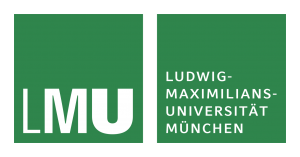Developing Theatre:
Building Expert Networks for Theatre in Emerging Countries after 1945
Theatrical Epistemic Communities: Theory and History
Christopher Balme’s subproject has the twin aim of 1) elaborating theoretically the concept of a theatrical epistemic community and 2) tracing historically its consolidation and differentiation in the pre- und post-WWII period.
Theatre for Development: Historiographical and Institutional Perspectives
Karim Hakib’s sub-project focuses on historicizing Theatre for Development (TfD). It will examine the histories, networks and theories that undergird the genre. Its key aim is to investigate the epistemic networks, the influence of philanthropy and the development agenda that propelled its global institutionalization within and outside higher education institutions, particularly Africa.
Theatrical Heterotopias in Conflict Zones
This sub-project traces the impact of foreign funding on theatre with additional examples from the visual arts and music in the Occupied Palestinian Territories from 1983 to the present day.
Festival Networks and Pan-African Performance Culture
Judith Rottenberg’s and Gideon Morison’s sub-projects investigate arts festivals that took place on the African continent in the 1960s and 1970s – the First World Festival of Negro Arts in Dakar (1966), the Pan-African Cultural Festival in Algiers (1969), the Second World Black and African Festival of Arts and Culture in Lagos (1977), as well as the Pan-African Historical Theatre Project, a festival held in Ghana every two years since 1992.
Philanthropy and Theatrical Development
Since its foundation in 1913, the Rockefeller Foundation has played an eminent in role in supporting institutions and organizations. In this sub-project, theatre and media historian Nic Leonhardt investigates funding policies and activities of both the Rockefeller and Ford Foundation in the realms of culture and theatre.
Theatre Experts for the Third World: ITI and the Globalization of Theatre
The ITI was founded in 1948 by ‘theatre experts’ to promote ‘international exchange of knowledge and practice in theatre arts’ and therefore provided regular support for ‘third world’ theatre. This project investigates how the ITI coordinated the movement of theatrical expertise in the Cold War era.


